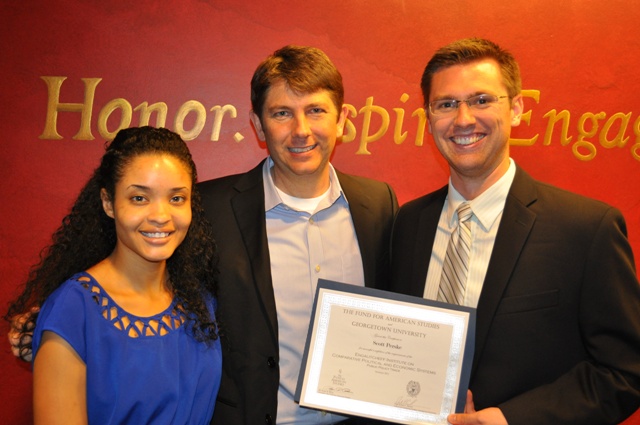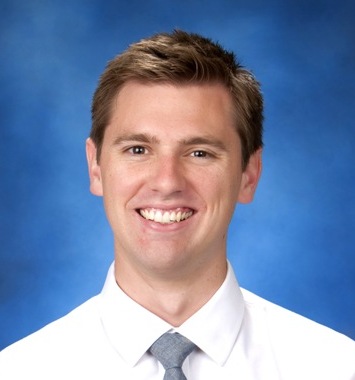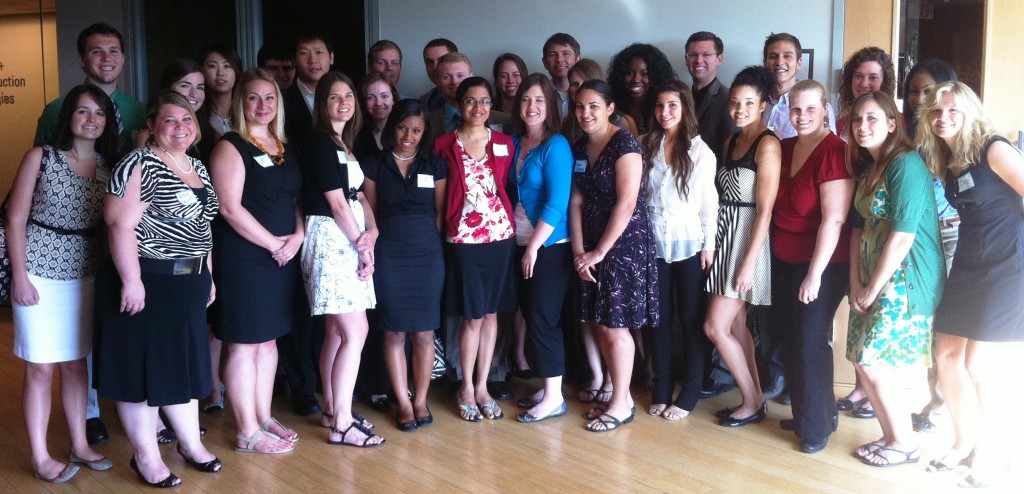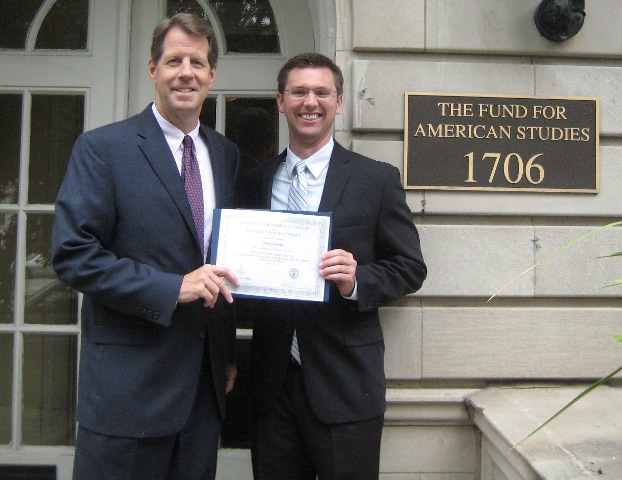The Fund for American Studies (TFAS) is an all-American program that brings high-achieving students together in one of the world’s major cities to experience life in their prospective careers by interning and taking classes at a high-end institution. The mission for The Fund for American Studies is to ‘create a brighter, more prosperous future by preparing young people for leadership’ by ‘teaching them the ideas of freedom and a free-market economy.’ There are five Institutes total – for journalism, business administration, voluntary services, public policy/international relations, and (for the already-registered law student) legal studies – and I completed the public policy track of the Engalitcheff Institute for Comparative Political and Economic Systems (or ICPES).
The application process for TFAS is similar to any other school or scholarship application, but because you’re also applying for an internship, there’s a section in which you discuss your goals and desires for your internship, and give examples for which organizations, companies, or other groups you’d like to work with. The internship placement process was, in my experience, the most frustrating part of the preparations. I know many other students who also voiced concerns about this part of the program, but most (myself included) seemed pleased (if not elated) with their internships by the end of our time in DC.
There are two important messages about TFAS any applicant must understand. First, you, as a TFAS student, are involved in a professional program for which the highest standards of behavior are expected. Every Institute is privileged enough to tour highly-regarded sites of interest that are important to their respective fields. We political people were privileged enough to tour foreign embassies, the White House (for a lucky handful), the Capitol, the CIA, and the Pentagon, among others. The benefits of these visits are incalculable.
The second message is that you will be busy – there’s no avoiding it. A typical weekday with TFAS requires a 9am to 5pm work day followed by a 6pm to 9pm class, and often further study time after that. You will learn how to live on a perpetually-late life schedule. Make no mistake, this is an absolutely essential lesson for anyone planning to go to grad school and concurrently work full-time.
One thing that doesn’t come across very clearly in the application process (but very clearly once you’re involved) is that TFAS leans to the right of the political spectrum. Coming from Hawaii (a historically-liberal state), I found this aspect both unrelentingly frustrating and immeasurably useful for my preparations for a political career. The classes and lecture series cover fundamental Conservative topics from a predominantly Conservative viewpoint without (unfortunately) discussing alternative options. But let me reiterate: this is not at all a drawback. Far too often do we write off our ‘opponent’s views’ as misguided without giving the ‘other side’ much respect. It takes an open mind to truly appreciate the process and products of learning.

Scott at the NSCS National Office in DC with Blair Edwards, Director of Strategic Engagement and Steve Loflin, CEO and Founder
Outside the classroom and workplace, TFAS makes sure its students get the most of their DC experience. There are very few weekends that don’t offer a TFAS-organized event. Community service is emphasized for all Institutes, as there’s at least one Saturday devoted to community service, but students also come together to support the Institute for Philanthropy and Voluntary Services (IPVS) which are designed to raise money to be donated to a local group by the IPVS on behalf of TFAS.
It’s really quite impressive – and quite enlightening for the NSCS engaged member – to see how much can be done for the community in eight short weeks. You will be busy. You will be tested. But you will gain so much experience and make invaluable connections, should you decide to participate in The Fund for American Studies.
 Scott Perske is a senior at the University of Hawaii at Manoa, where he studies World/Comparative History and International Relations. He currently serves as the Executive Vice President of the National Leadership Council for The National Society of Collegiate Scholars. He has taken part in the International Scholar Laureate Program’s European delegation for Diplomacy and International Relations, has completed a course study at the Qufu Normal University in Qufu, China, and has traveled into Tibet with a seminar on Chinese culture and economics.
Scott Perske is a senior at the University of Hawaii at Manoa, where he studies World/Comparative History and International Relations. He currently serves as the Executive Vice President of the National Leadership Council for The National Society of Collegiate Scholars. He has taken part in the International Scholar Laureate Program’s European delegation for Diplomacy and International Relations, has completed a course study at the Qufu Normal University in Qufu, China, and has traveled into Tibet with a seminar on Chinese culture and economics.


